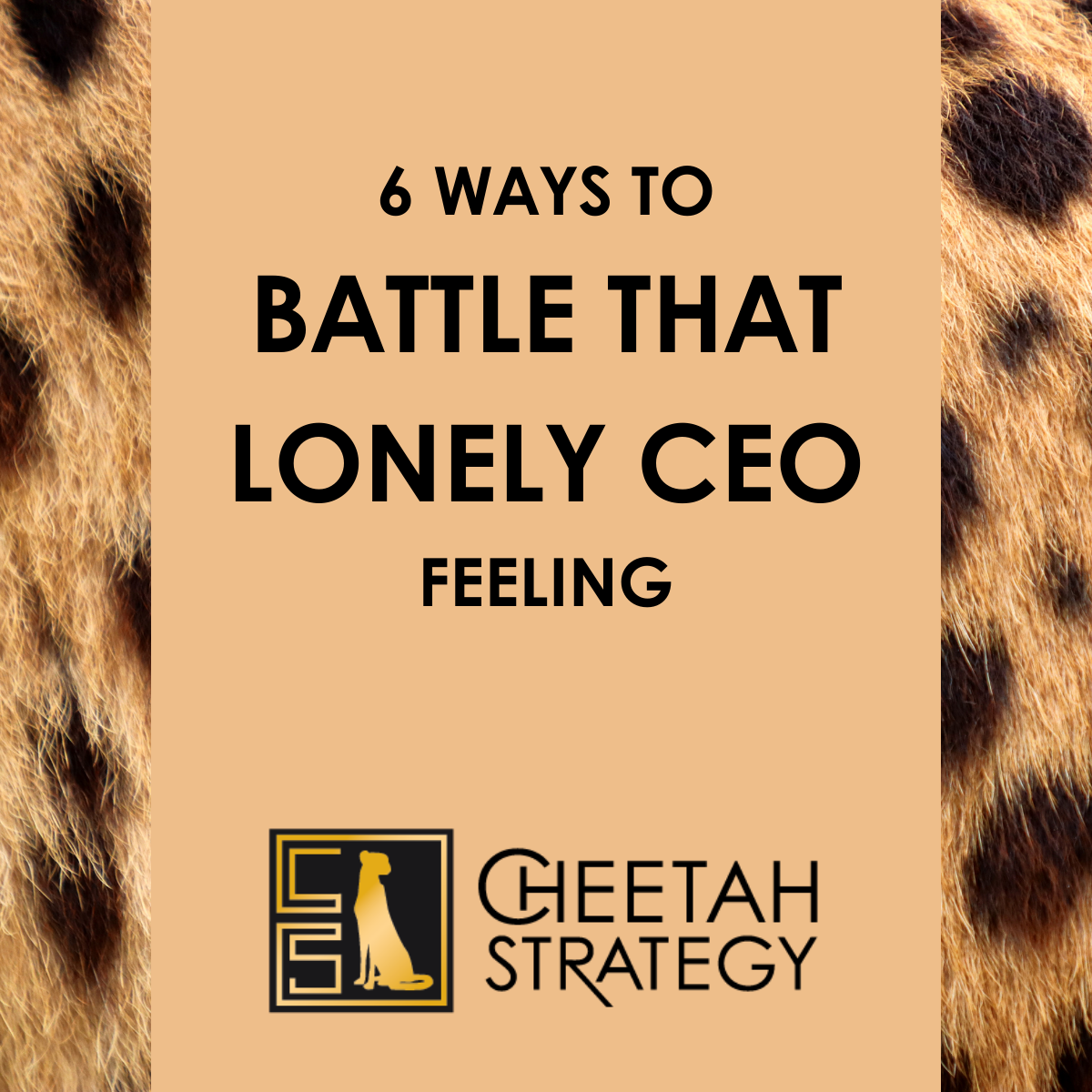A challenge many business leaders have in common is that their role as CEO, president, or executive director can make them feel lonely and isolated at times.
Through my strategic planning consulting business and in my previous strategic leadership roles, I’ve worked directly with a myriad of CEOs. These CEOs work for public and private corporations, non-profit organizations, government bodies, and Tribal entities across multiple industries and sectors. They work for large and small businesses; include males, females, transgender people, and people of color; and each employs unique leadership styles. Nevertheless, a challenge many of them have in common is that their role as CEO, president, or executive director can make them feel lonely and isolated at times.
Upon closer observation, I discovered that leaders sometimes see their jobs as isolating because they:
- have to make tough decisions that can negatively impact people’s lives
- can be “put on a pedestal” by some employees, so they don’t want to be around the CEO because he/she makes them nervous
- are overwhelmed with decision fatigue or the burden of feeling like they always have to have the answer
- can’t share certain information that’s deemed confidential
- are constantly under pressure from company owners or boards of directors
But there are ways to combat these feelings and through these means, leaders can become better leaders. In my experience, these are the six best ways to battle that “lonely at the top” feeling:
1. PARTICIPATE IN A PEER GROUP
CEOs can join a formal or informal peer networking group. This group should share a purpose and a strong commitment to confidentiality. You can find other CEOs whose companies are the same size as yours but in different industries, who are in your same industry, or who share your same geographic location. You can also look for people who are like you in another important way (other female leaders, for example). It can be an organized group facilitated by a professional peer network coach or simply a group that meets over tea or video chat on a regular basis.
You’ll likely be surprised by the valuable insights you can gain from people outside of your field. The most crucial piece of this technique is that you participate in a group that empowers you to actively contribute by sharing your struggles and listening to and advising others on their struggles.
2. FIND A TRUSTED FRIEND OR FAMILY MEMBER
Many CEOs I know discuss important private business matters with their spouse or life partner, a sibling, or a best friend. Getting an outside perspective from a personal connection is often a cathartic way for them to express the positive and negative feelings associated with work. Since these people don’t typically have a sense of the day-to-day dealings of the business, the CEO can oftentimes just vent or ask for a (somewhat impartial) opinion about what to do about something.
3. HIRE A CONSULTANT OR COACH
Hiring an outside business consultant or coach can also be very helpful to CEOs who may feel alone. Consultants and coaches are third-party professionals who understand the frustrations of business and can pull from their experiences to offer sound advice and insights from an external point of view. Once a consultant has established a strong relationship with the CEO and a solid understanding of their business, their guidance only becomes more meaningful to the leader of the organization.
You can find a consultant or coach by asking trusted connections for referrals, or perhaps searching LinkedIn or another professional social network.
4. BUILD A STRONG LEADERSHIP TEAM
To avoid feeling lonely as a CEO, it’s imperative to have dynamic leadership team members who are not only capable experts in their fields but also trust the CEO and each other. They should be included from start to finish in making key decisions (or given challenges to tackle on their own), learn to have healthy debates and conflicts at times, speak up for their departments when necessary, and stand down when they disagree with something that isn’t really that important. Finding peer groups for your leadership team is also a great idea to allow them to connect with like-minded people. Lastly, CEOs need to remember that victories should be celebrated as a team versus simply offering individuals recognition.
5. GET PERSONAL WHEN POSSIBLE
Another way to combat feelings of isolation is for CEOs to develop strong personal relationships with their leadership teams and employees. CEOs need to make meaningful connections with people who go beyond conference rooms or cubicles. This means that leaders need to show vulnerability and share personal things about themselves, and also be curious (in a non-invasive way) about their colleagues’ lives and experiences.
Sharing at this level builds bonds over time that will eventually lead to being able to share authentic human thoughts and feelings on the job.
6. NURTURE YOUR WELL-BEING
If there is one thing that I believe most contributes to CEOs feeling lonely at work, it’s that their identities are fully associated with their jobs. Said another way, they have no life beyond the walls of their business. Organizational leaders cannot forget to take care of themselves as human beings. This means finding outside interests, eating right, staying healthy, getting enough sleep, showing gratitude, and so much more. Being able to separate yourself from work will help feed your soul and make you a better CEO.
Not all CEOs and business leaders feel a sense of isolation, and it’s likely because they practice some or all of these six activities. For the CEOs who do feel lonely: Remember to be humble, vulnerable, inclusive, flexible, open-minded, and grateful. Embodying these positive characteristics, coupled with engaging in the six methods above, will lead to a more fulfilling and less lonely role as the leader of your organization—and likely even a more successful organization.
——————–
Originally published on FastCompany.com via the Fast Company Executive Board, Cheetah Strategy’s Founder/President offers some thoughtful advice to business leaders who may feel lonely or isolated in their jobs.


